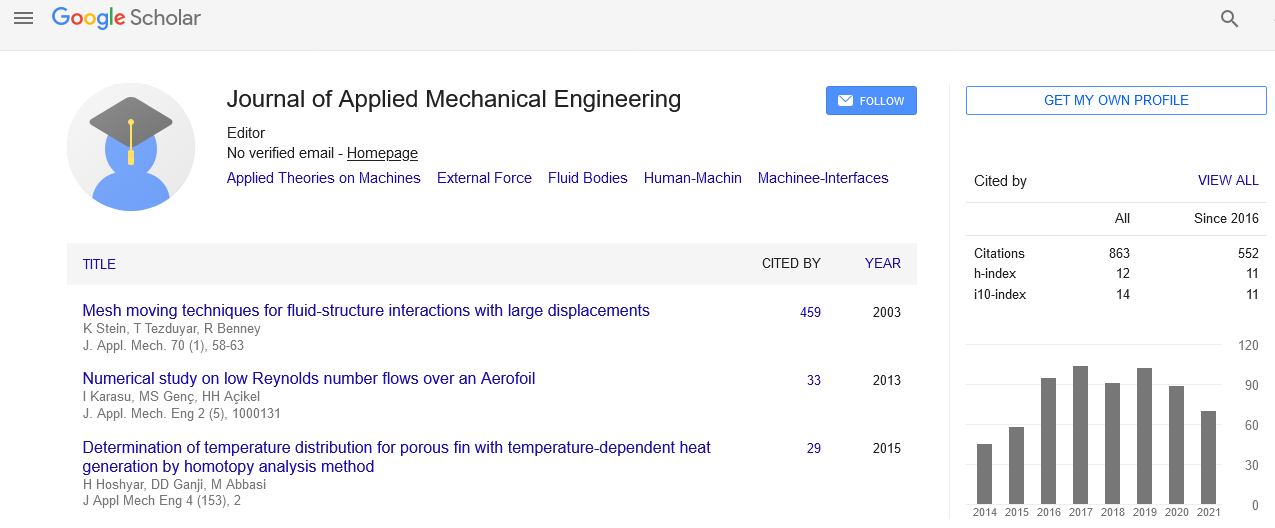Indexed In
- Genamics JournalSeek
- JournalTOCs
- CiteFactor
- RefSeek
- Hamdard University
- EBSCO A-Z
- OCLC- WorldCat
- Publons
- Google Scholar
Useful Links
Share This Page
Journal Flyer

Open Access Journals
- Agri and Aquaculture
- Biochemistry
- Bioinformatics & Systems Biology
- Business & Management
- Chemistry
- Clinical Sciences
- Engineering
- Food & Nutrition
- General Science
- Genetics & Molecular Biology
- Immunology & Microbiology
- Medical Sciences
- Neuroscience & Psychology
- Nursing & Health Care
- Pharmaceutical Sciences
Experimental study on nanosecond pulsed pin-to-plate discharge in supersonic air flow
3rd International Conference on Fluid Dynamics & Aerodynamics
October 25-26, 2018 | Berlin, Germany
Yiwen Li
Air Force Engineering University, China
Posters & Accepted Abstracts: J Appl Mech Eng
Abstract:
The development of magnetohydrodynamic (MHD) acceleration technology is expected to improve wind tunnel simulation capability and test capability. The premise of this technology is to produce uniform and stable plasma in supersonic air flow, and gas discharge is an effective way to achieve this premise. By using a nanosecond pulsed power, pin-to-plate discharge experiments under static conditions and Ma2 air flow conditions were carried out, respectively. The results show that the interelectrode gap distance is a determined factor for corona discharge under low pressure, the transitions between glow and corona regimes can be realized by changing the pressure. On the other hand, the discharge under supersonic conditions was overall stable, but the uniformity was not as good as that under static conditions. Specifically, single-pin discharge voltage peak at 1000 Hz reached 12,300 V, which was higher than 11,700 V under static conditions. In the 6-pin discharge condition, almost no discharge was observed at 500 Hz, but became distinctive at 1500 Hz, and stable and uniform discharge was achieved at 2000 Hz.
Biography :
E-mail: lee_yiwen@163.com

